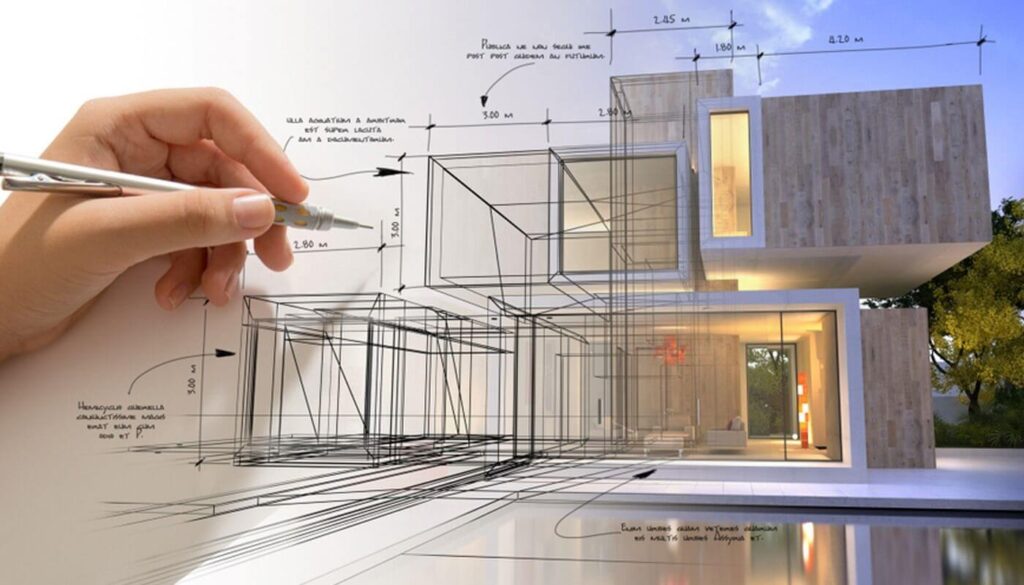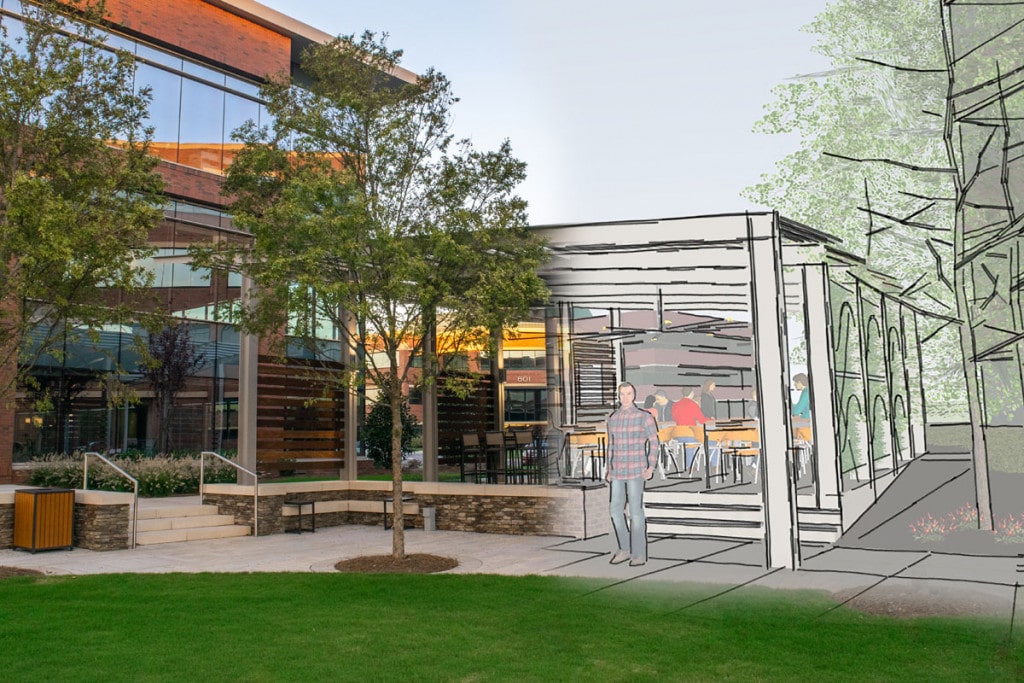The Creative Process Behind Effective Jobs from CDA Architects
The Creative Process Behind Effective Jobs from CDA Architects
Blog Article
The Important Duty of an Engineer fit Sustainable Urban Settings for Future Generations
The role of an architect in crafting lasting urban atmospheres is progressively crucial in replying to the obstacles of climate modification and urbanization. By effortlessly incorporating environmental principles into their designs, architects not just boost the visual and practical high quality of urban spaces yet additionally address pushing issues such as energy performance and social equity. Their knowledge in ingenious materials and area involvement forms developments that resonate with neighborhood worths and ambitions. Nevertheless, as we explore the intricacies of this area better, it comes to be apparent that the future of urban living might depend upon the actual methods designers use today.
Comprehending Sustainable Urban Layout
Sustainable metropolitan style incorporates ecological concepts with city planning to produce settings that are not only habitable yet also resistant. This method stresses the importance of integrating all-natural systems right into the urban material, ensuring that development satisfies the demands of the here and now without compromising the capacity of future generations to fulfill their own requirements. Secret components of sustainable metropolitan style consist of reliable land usage, the promo of biodiversity, and the integration of green areas, all of which add to boosted high quality of life for homeowners.
Additionally, sustainable urban design prioritizes the reduction of the urban heat island effect, boosted air top quality, and efficient stormwater monitoring. It encourages the use of renewable resources and energy-efficient structure practices, which considerably lower carbon footprints. Additionally, sustainable metropolitan layout promotes social equity by producing easily accessible public areas and promoting mixed-use advancements that cater to diverse populations.
Via thoughtful preparation and ingenious style techniques, sustainable city settings can enhance area durability against environment adjustment while promoting economic growth. This alternative method not only addresses immediate metropolitan difficulties however also lays the groundwork for healthier, much more lasting cities for generations to come.
Trick Obligations of Engineers
Engineers play a critical role in forming lasting city atmospheres by equating layout principles right into substantial frameworks and rooms. Their obligations incorporate a large range of activities that add to the overall success of urban layout jobs.
Most importantly, architects conduct extensive site analyses to understand the ecological, social, and social context of their projects. This fundamental knowledge educates their design choices, making sure that buildings balance with their surroundings. They likewise participate in collaborative procedures with stakeholders, including city organizers, designers, and the area, fostering an inclusive approach to metropolitan development.
Furthermore, engineers are tasked with producing layouts that optimize energy performance, source conservation, and performance. They must follow neighborhood zoning laws, developing codes, and sustainability qualifications, guaranteeing compliance while pressing the limits of advancement.

Ingenious Materials and Techniques
In the pursuit of environmentally responsible layout, ingenious products and techniques have become important aspects in the development of sustainable city atmospheres. Architects are increasingly making use of materials that reduce ecological impact while enhancing energy effectiveness. Recycled materials, such as redeemed wood and repurposed steels, not only reduce waste yet additionally add one-of-a-kind aesthetic top qualities to structures.
In addition, developments in modern technology have actually resulted in the advancement of high-performance products, such as shielded concrete kinds (ICFs) and photovoltaic or pv glass, which add to energy conservation and harness sustainable power. Techniques such as passive solar style and environment-friendly roofs even more exhibit just how style can harmonize with natural systems, minimizing dependence on artificial heating & cooling.
In addition, the combination of clever materials, which adapt to environmental adjustments, supplies appealing avenues for enhancing structure performance - cda architects. These products can react to temperature fluctuations or dampness levels, maximizing comfort and sustainability
Inevitably, the strategic selection and application of cutting-edge products and strategies equip designers to produce city spaces that are not only useful and aesthetically pleasing but additionally resistant and ecologically accountable, guaranteeing a sustainable future for generations to come.
Area Involvement and Cooperation
The success of cutting-edge products and strategies in lasting urban style is substantially boosted by energetic area involvement and partnership. Engineers must identify that the constructed setting greatly impacts the lives of regional citizens, making it essential to involve them in the design procedure. Engaging the area cultivates a feeling of possession and responsibility, making sure that growths not only satisfy visual reference and practical needs but likewise reflect the values and goals of those that occupy them.

Effective community engagement likewise assists in focusing on social equity within city growth. By thinking about the voices of marginalized populaces, engineers can create spaces that are inclusive and equitable. By doing this, community engagement and collaboration end up being integral to go to these guys accomplishing absolutely sustainable urban atmospheres that offer the needs of existing and future generations.
Future Fads in Sustainable Style

In addition, improvements in modern technology are forming future fads in lasting architecture. The integration of smart materials and structure systems enables for real-time energy management, enhancing effectiveness and decreasing carbon impacts. Innovations such as green roofings, living wall surfaces, and energy-generating facades are ending up being basic methods, better promoting environmental equilibrium within metropolitan environments.
Furthermore, a change in the direction of biophilic design is getting grip, highlighting the link in between nature and human well-being. By integrating natural environments, designers produce rooms that foster mental wellness while promoting biodiversity.
Final Thought
To conclude, architects are critical ahead of time lasting urban settings through their knowledge in layout, ingenious materials, and neighborhood engagement. By focusing on energy effectiveness and source conservation, these specialists contribute to the production of resilient urban rooms that fulfill the demands of existing and future generations - cda architects. The assimilation of eco-friendly concepts not just improves livability but additionally cultivates social equity, making certain growths resonate that site with the worths and goals of the communities they offer
Report this page